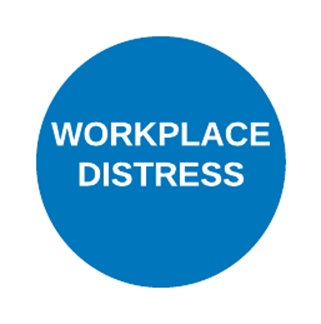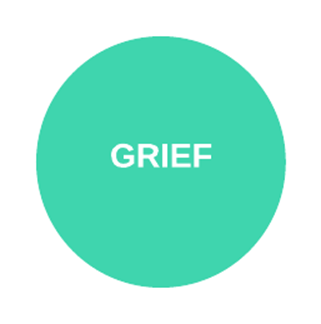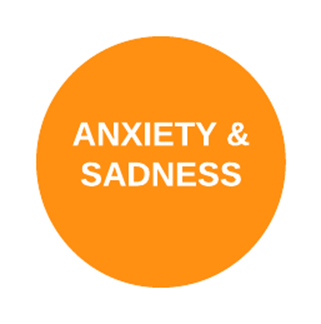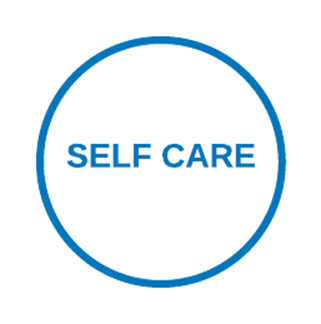Staff Wellbeing Access Program (SWAP)
Swapping the focus to you.
A tailored program for RACF staff.
Knowledge creates empowerment
Being able to understand mental health can give us a better understanding of ourselves and the way we interact with our relationships, family, and our work. Mental health is about our well-being. It’s not a fixed situation, but a moving response that can change with our circumstances, environment and the people we surround ourselves with. This page has been specifically designed for RACF staff and managers. It will give you some helpful hints, links to support and downloadable resources to help you be more aware of your mental health and provide you with some useful strategies you can add into your daily life.

The Staff Wellbeing Access Program (SWAP) is a program that has been established to provide information, initial support and referral pathways to free and confidential counselling. It is specifically targeted to staff and managers who work in residential age care facilities. Our qualified and experienced program team will help with a range of issues such as COVID trauma, anxiety, stress, depression, sleep issues or concerns about drug and substance use. SWAP offers workplace mental health information and training and connection to a counsellor through telephone, face to face or via secure telehealth platform – in a convenient way for you.
The COVID-19 pandemic has had a devastating impact on many residential aged care facilities (RACFs) across Australia.
In response to this, APMHA HealthCare was engaged to provide a tailored mental health program for RACF staff.
The SWAP program provides a tailored wellbeing support program for your RACF Workforce.
A key focus is the provision of support for aged care workers who do not currently access mental health services and/or do not have access to an Employee Assistance Program through their workplace.
If your RACF would like to engage with this program, please contact us through the button below or by calling
This page aims to:
- Provide you with access to SWAP via our contact points.
- Help you understand your own mental health and wellbeing better.
- Provide you with helpful links to better support your mental health.
- Provide you with handy hints, tips and strategies.
- Help you recognise when those around you may be struggling and how to best support them.
- Help you understand how to work more effectively with family, friends and colleagues.
About the Program
Confidentiality
Our SWAP program team and counsellors are required by law and their professional code of ethics to keep anything you share in our sessions as confidential.
What services are available to me?
We will provide:
- A safe space to discuss the overall impact of COVID on you, your colleagues, residents and families.
- Provision of handouts and information about mental health and wellbeing.
- Delivery of tailored sessions aimed to build awareness of and strategies for wellbeing and self-care.
- Access to counselling options to further support you
- Provision of EAP services (if your RACF does not have a current provider)
Privacy & Your Rights
Click below to download a copy
Swapping the focus to you.

Tips to support you

Supporting you through your journey

Helping you through tough times

Resources, Weblinks & Apps to help you

Tips for sleep, building resilience and wellbeing
For Family & Child Support
Resources to help you support your residents
Workplace Distress
Anger/Frustration
Through the COVID-19 pandemic, workplaces have changed for everyone. Within the RACF environment, there are people working from home, people now working in only one RACF instead of many, work clothes now may consist of gowns, and we all wear masks. We as a workforce have changed so that we can create the barrier to the COVID-19 and reduce the risk of transmission. The impact on us as a workforce however could mean that we experience emotions that at times can be distressing.
We may experience emotions from anger to frustration as it may be our way of expressing or responding to a range of other feelings for example stress. The stress may be because of the extra steps that are now required for a simple task to be completed. How our workplace has changed may have an impact that has increased our feelings of anger and frustration. An important fact to consider however, is if you feel that your anger is increasing and it is now moving to an action of aggression or violence, it is important that you seek support.
Anger and the workplace can have consequences if your anger is having an impact on others. While this is an extraordinary time and workplace legislation still applies, it is important that this pandemic does not define who you are as a member of a workforce.
As well as managing the different emotions that you are experiencing we are also being challenged in other areas such as the relationship between own morals or values and the choices we have had to make as part of reducing the risk of exposure to others within the RACF. We may experience an internal battle between providing care to our residents and then measuring that against keeping our families / loved ones safe from the COVID-19. We may be challenged on a deeply personal level such as with our morals which have shaped how we provide care. For example, we are suddenly asked to limit our human touch in order to avoid increased risk of transmission. As health care providers, we see human touch as a vital part of how we provide care, whether it is showering a resident, helping a resident with a cup of tea or holding a resident’s hand when they are distressed.
We are being challenged in many areas and our current work environment and this is requiring us to move in different directions. While the work environment is currently asking us to keep changing, it is important that we learn new ways to adapt and seek support.
For more information and resources, please review the toggle on the right =>
Workplace resources and support
Downloadable Resources
- Staff Wellbeing Access Program – Anger
- Staff Wellbeing Access Program – Moral Stress
- SuperFriend: Peer support booklet
- BeyondBlue: Taking care of your mental health
- Workplace prevention of mental health problems – Guidelines for organisations
- Australian Government Department of Health Coronavirus (COVID-19) mental health campaign resources
- Factsheet – Additional medicare support
Websites
- Head to Health: Tips for employees
- Head to Health: Keeping well at work
- ReachOut for professionals
- Return to Work
- Black Dog – Working from home: A checklist to support your mental health
- Nurse and midwife support
- Phoenix Australia: Disaster Mental Health Hub
- Fair Work Ombudsman
Smart Phone Apps
Grief
With the onset of the COVID-19, healthcare workers now have an added responsibility for minimising virus exposure to the people they care for as well as for themselves, their families and colleagues. This is a daunting responsibility, given that the virus is not readily detected in its early stages of infection.
Added to this pressure, is the distress associated with the deaths of clients or patients that the healthcare worker has worked closely with and held responsibility for their care. Staff are also dealing with the grief of families, who due to the virus, may have been unable to be with the person leading up to and following the death.
Healthcare workers are dealing with multiple layers of grief and loss. Bereavement resulting from the death of a client or patient, working with the bereaved relatives and in many instances, due to the risk of exposure to COVID-19, physical isolation from their own families.
Some healthcare workers may also experience avoidance by their family or community as a result of stigma or fear. This can make an already challenging work situation even more difficult. Managing mental health and psychosocial well-being during this pandemic is as vital as managing physical health.
Being aware of this grief and finding ways to cope with pressure, stress, grief and loss is essential to continue caring for clients and patients with empathy and skill.
Grief resources and support
Back to Key Factors Menu
Anxiety & Sadness
In the RACF workplace, we have found ourselves in an incredibly stressful and difficult position of turning families away from seeing their loved one, supporting residents who are unable to socialize with their RACF friends and community, and providing care to residents who are passing that is different to how palliative care is normally provided. These and other experiences may create a feeling of sadness that at times may feel overwhelming. It is when the feeling of sadness becomes overwhelming and you are having difficulties managing your day-to-day life that you may need some extra help to cope and work through these feelings.
We may also start to feel an increase in our anxiety as we are trying to manage reducing the risk of transmission in our home space as well as our work space. There is currently limited opportunity to relax as we are being extraordinarily vigilant each moment we are at work. We are currently experiencing an extended exposure to stress and anxiety that has not had an opportunity to subside. We may start to experience responses that could be physical, behavioural or psychological. It is important for your self care that if you feel an impact of these feelings that you look at support.
For more information and resources, please review the toggle on the right =>
Connecting with Services & Support
Downloadable Resources
- Staff Wellbeing Access Program – Sadness
- Staff Wellbeing Access Program – Anxiety
- Connecting with others for a healthy headspace
Telephone support
- Lifeline (24-hour crisis counselling) 13 11 14
- SANE 1800 187 263
- Suicide Call Back Service 1300 659 467
- SuicideLine Victoria 1300 651 251
- MensLine 1300 789 978
- BeyondBlue Coronavirus Mental Wellbeing Support Service 1800 512 348
Websites
- QLife counselling and support for LGBTI people.
- Head to Health Mental health and COVID-19 support
- MindSpot
- Moodgym
- The Made-4-Me Program
Smart Phone Apps
- The Check-in app
- BeyondNow
- 7 Cups emotional Support
- onlyhuman
- This Way Up
- iBobbly for Aboriginal and Torres Strait Islander Support
Anxiety & Sadness resources
Downloadable Resources
Websites
- e-couch provides information about emotional issues you might be experiencing
- Black Dog Institute: Anxiety self-test
- Phoenix Australia – Trauma toolkit
- HelpGuide: How to cope with traumatic events like coronavirus
- BeyondBlue – Coronavirus Mental Wellbeing Support
- Dealing with uncertainty during coronavirus
Smart Phone Apps
Alcohol & Other Substances
COVID-19 has impacted all aspects of our life in some form or another. We have all had to manage dramatic change and sometimes this change has occurred quickly. The change for you as part of the RACF workforce has been substantial, as it now shapes how you interact with residents and their loved ones, your coworkers and your RACF community. We are having to manage change and how our emotions may be responding to this change.
Many people turn to something to help them cope. Some turn to exercise, meditation or others may turn to alcohol or substance use. If you are finding that your alcohol use or use of other substances such as cannabis or over the counter medication is increasing, it is important to look at what supports are available. There has been a dramatic increase in alcohol and substance use throughout the pandemic all over Australia. If you are finding that your alcohol or substance use has increased through this pandemic, you are not on your own.
If you feel like you are experiencing problems related to your drinking;
- Talk to your doctor or nurse to see if you are at risk of alcohol related harms
- Complete a self-administered AUDIT Tool or ask your health professional to complete one with you
- Monitor your alcohol intake (with your doctor or with an Alcohol Calculator Tool)
- Check out some of the resources to the right of this section to help you understand your drinking habits.
For more information and resources, please review the toggle on the right =>
Is your alcohol consumption affecting your health?
Downloadable Resources
Telephone support
- DirectLine (Victoria – confidential alcohol and drug counselling) 1800 888 236
Websites
Self Care
Most of us spend our working hours caring for others but are we taking the time to care for ourselves?
Self care starts with you
Do you plan your time at home or does it feel like there’s not enough time in a day?
Do you find yourself not actively engaging in activities after work because you just want to relax?
Planning enjoyment can lift our mood, provide us with routine, help us plan, feel prepared, and overall more productive in our daily lives. Its not about scheduling every part of a day, its about keeping things simple. Stop and think for a minute about what puts a smile on your face…What reduces your stress?
If your not sure where to start, keep it simple and try different activities until you find one that sticks:
- Cook something new
- Touch base with a friend
- Create, dance or listen to music
Fueling the tank and feeling physically charged
Choosing food and activity for good health is a great way to:
- Feel better mentally – This can include mood, concentration, information retention, and overall performance.
- Reduce physical health problems that can arise from poor diet or low activity (due to low energy).
- Get help sooner – The healthier you are the more likely you are to identify problems in your health before they become debilitating. The earlier any physically or mental illness is identified, the easier it usually is to improve or treat.
- Take control of your life, and routine so that you can spend more time and energy on the things you enjoy!
Eating for your health is not just about avoiding unhealthy food groups, its also about the way we consume food and the habits we form. You can complete the ‘Are you eating for health?’ quiz in the Australian Dietary Guidelines Summary to find out where you sit.
Similarly, there are a number of online calculators for nutrition that can guide you to the right of this section ⇒
Quick Tips:
- Eat regularly as a spontaneous or unstructured eating patterns can result in poor eating choices which can affect your mood and energy levels
- Eat breakfast to kick start your day & plan your meals
- Eat with people not while watching tv as it is more difficult to respond to our body’s signals (hunger & satiety)
- Remember small changes can make a big difference! Try reducing or removing things that may disrupt your positive habits around food and exercise, but not too quickly.
- Share care and information with those in your support network. This could mean discussing/working on a new fitness plan with a friend, cooking new healthier meals at home with your children or monitoring your progress with your health professional.
Sleep and Mindfulness
Sleep disturbance commonly involves difficulty getting to sleep with or without early morning waking (usually around 3am) followed by a restless night thereafter. To restore a pattern of normal sleep, it is important to practice sleep-promoting behaviours during the day, in the evening, at bedtime and during the night. It is important to remember that adults are no different to children, we also need wind down routines. Consider how you put your ‘inner child’ to bed… Are your habits and actions sleep promoting or disruptive behaviour?
If your experiencing sleep disturbance, it may be worth considering your patterns more closely using the sleep diary found in Downloadable Resources ⇒
Have you ever tried completing mindful breathing exercises, guided meditations or calming sounds as you prepare to sleep?
Try some of the available audio files on the right to see if this works for you!
How do you implement self care?
Downloadable Resources
- Staff Wellbeing Access Program – Self Care
- Staff Wellbeing Access Program – Simple personal rules
- Managing Stress
- Life in Mind: A guide to self-care
- Connecting with others for a healthy headspace
- BeyondBlue: Factsheet what are my options
- BeyondBlue: Staying Well brochure
Websites
- WellMob: New wellbeing resource for indigenous peoples
- HeadtoHealth: Supporting yourself
- e-couch provides information about emotional issues you might be experiencing
- 15 Stress-busting activities to help you relax
- MindSpot offering short courses and activities for those experiencing symptoms of anxiety and depression
- Moodgym is like an interactive self-help book that helps you learn and practise skills to manage symptoms of depression and anxiety.
- This Way Up
- BeyondBlue Looking after yourself while supporting others
- SANE how to talk to your gp about your mental health
Smart Phone Apps
- MoodPrism
- Smiling Mind
- Fabulous: Reset your habits
- Headspace
- 1GiantMind
- Stop, Breathe & Think
- The Five Minute Journal App
- Ten Percent Happier
- Onlyhuman App
- iBobbly for Aboriginal and Torres Strait Islander Support
- Recharge App
Are you being physically active?
Downloadable Resources
Websites
Could your eating habits be improved?
Downloadable Resources
- Australian Guide to Healthy Eating
- Australian Dietary Guidelines Summary
- How to understand food labels
Websites
- Calculate your daily energy needs here
- Calculate your daily nutrient requirements
- Better Health Channel: Healthy eating
- OnTrack supporting your journey to health and wellbeing.
Smart Phone Apps
Are you sleeping well or could it be improved?
Breathing Exercise
Guided Imagery
Back to Key Factors Menu
Family and Child Support
Downloadable Resources
- Surviving Traumatic Grief Vol. 1
- Surviving Traumatic Grief For Families Vol. 2
- Fact Sheet – Additional Medicare Support
Websites
- WellMob: New wellbeing resource for indigenous peoples
- BeyondBlue Looking after yourself while supporting others
- SANE how to talk to your gp about your mental health
- Kids Help Line
- Berry Street for children, young people and families
- RSPCA Victoria and COVID-19 FAQ’s
- Djirra: Specialist support for aboriginal people experiencing family violence.
- In Touch: Multicultural Centre Against Family Violence
- The Lookout: Covid-19 and family violence FAQ’s (Domestic Violence Victoria)
- Open Arms Veteran and Families Counselling
Smart Phone Apps
Resources to help you support your residents
Downloadable Resources
- BeyondBlue: Connections Matter – Helping older People stay socially active
- BeyondBlue: Tips when working with Older people from CALD background
- BeyondBlue: What works to promote emotional wellbeing in older adults
Telephone Support
- OPAN Older Persons Advocacy Network
1800 237 981
